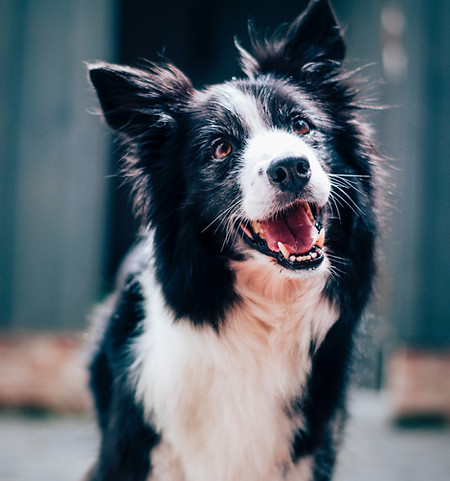Vaccinations
Pet vaccines are crucial for safeguarding the health and well-being of our furry companions. By administering vaccines, we can protect pets from potentially life-threatening diseases such as rabies, distemper, parvovirus, and more. Vaccinations not only prevent illness in individual animals but also contribute to the overall community health by reducing the spread of contagious diseases. Regular vaccination protocols recommended by veterinarians help ensure that pets stay healthy and happy, promoting a longer and higher quality of life for our beloved companions.

Cat Vaccines
Cat vaccines are essential for preventing a range of infectious diseases that can pose serious health risks to feline companions. Core vaccines, including those for feline herpesvirus, calicivirus, and panleukopenia, protect against common and potentially fatal illnesses. Additionally, rabies vaccination is often required by law due to its zoonotic potential. Regular vaccination schedules tailored to individual cats help ensure their immunity remains strong, promoting long-term health and well-being. Regular veterinary consultations and adherence to vaccination protocols are vital in safeguarding the health of our feline companions and minimizing the risk of preventable diseases.


Dog Vaccines
Dog vaccines play a vital role in maintaining the health and longevity of our canine companions. These vaccines are designed to protect dogs from a range of infectious diseases such as rabies, parvovirus, distemper, adenovirus, and kennel cough, among others. Vaccination schedules recommended by veterinarians are tailored to the individual dog's lifestyle, age, and risk factors. By ensuring that dogs receive timely vaccinations, pet owners can significantly reduce the risk of their furry friends contracting serious and potentially life-threatening illnesses. Additionally, widespread vaccination helps create herd immunity within the dog population, contributing to the overall well-being of canine communities.
Kitten Vaccines
Kitten vaccines are vital for protecting the health of our young feline friends. Beginning a vaccination schedule early in a kitten's life helps to build immunity against common and potentially deadly diseases, such as feline panleukopenia (FPV), feline viral rhinotracheitis (FVR), and feline calicivirus (FCV). These vaccinations are typically started around 6-8 weeks of age and require boosters every few weeks until the kitten reaches around 16 weeks old to ensure adequate protection. Vaccinating kittens not only shields them from serious illnesses but also contributes to the prevention of disease transmission within the feline population, promoting a healthier and happier community of cats. Regular veterinary check-ups and adherence to recommended vaccination schedules are essential for ensuring the well-being and longevity of kittens.


Puppy Vaccines
Puppy vaccines play a vital role in protecting young dogs from a range of infectious diseases during their vulnerable early months. These vaccines are designed to bolster a puppy's developing immune system, providing crucial defenses against common threats such as parvovirus, distemper, hepatitis, and canine influenza. By following a veterinarian-recommended vaccination schedule, puppies can build immunity and reduce their susceptibility to potentially life-threatening illnesses. Early vaccination not only safeguards the individual puppy's health but also contributes to the overall well-being of the canine community by curbing the spread of contagious diseases. It's essential for puppy owners to adhere to vaccination protocols to ensure their furry companions enjoy a healthy and happy start to life.
FAQs
What vaccines do cats need?
-
Cats typically require core vaccines, including those for feline panleukopenia (FPV), feline herpesvirus (FHV), and feline calicivirus (FCV). Rabies vaccination is also crucial and often required by law. Additionally, non-core vaccines may be recommended based on factors such as lifestyle and environment.
At what age should kittens start vaccinations?
-
Kittens should begin their vaccination series around 6-8 weeks of age, with boosters administered every 3-4 weeks until they reach around 16 weeks old. These initial vaccinations are critical for building immunity and protecting against common diseases.
How often do adult cats need vaccinations?
-
After completing the initial series, adult cats typically require booster shots for core vaccines every 1-3 years, depending on the vaccine and the cat's risk factors. Non-core vaccines may have different schedules based on individual circumstances.
Are cat vaccines safe?
-
Cat vaccines are generally safe, with adverse reactions being rare. However, like any medical intervention, there can be side effects. These are typically mild and temporary, such as lethargy or soreness at the injection site. Serious reactions are uncommon but should be reported to a veterinarian immediately.
Do indoor cats need vaccines?
-
Even indoor cats should receive vaccinations because they can still be exposed to diseases. Some viruses, like FHV and FCV, can be transmitted through the air or on clothing, shoes, or other objects brought into the home. Additionally, rabies vaccination may be required by law regardless of whether the cat goes outdoors.
Can cats be vaccinated if they are pregnant or nursing?
-
Vaccination during pregnancy is generally avoided, but some vaccines may be safe for pregnant cats depending on their individual circumstances. It's essential to consult with a veterinarian to determine the best course of action. Vaccination during lactation is generally safe and can help protect nursing kittens.
What if my cat misses a vaccine?
-
If a cat misses a scheduled vaccine, it's essential to catch up as soon as possible. Depending on the vaccine and the length of time since the last dose, a booster may be required to ensure adequate protection. Veterinarians can provide guidance on the appropriate course of action.
Are there risks associated with over-vaccination?
-
Over-vaccination can potentially pose risks, including the development of vaccine-related sarcomas in cats. To minimize these risks, veterinarians may tailor vaccination protocols based on factors such as the cat's age, health status, lifestyle, and risk of exposure to specific diseases.
What vaccines does my dog need and when should they receive them?
-
The essential vaccines for dogs include those protecting against rabies, distemper, parvovirus, adenovirus, and sometimes Bordetella and leptospirosis. Puppies typically start their vaccination series around 6-8 weeks of age, with boosters given every few weeks until they're around 16 weeks old. Adult dogs require regular booster shots to maintain immunity, typically annually or as recommended by your veterinarian.
Are dog vaccines safe?
-
Yes, dog vaccines are generally safe and well-tolerated. Like with any medical intervention, there can be minor side effects such as soreness at the injection site or mild fever. Severe reactions are rare but can occur. It's essential to discuss any concerns with your veterinarian, who can help assess your dog's individual risk factors and tailor a vaccination plan accordingly.
Can my dog have an allergic reaction to vaccines?
-
While allergic reactions to vaccines are uncommon in dogs, they can happen. Signs of an allergic reaction may include swelling, hives, difficulty breathing, vomiting, or diarrhea. If you notice any concerning symptoms after vaccination, contact your veterinarian immediately.
Are there risks associated with not vaccinating my dog?
-
Yes, foregoing vaccines puts your dog at risk of contracting serious and potentially deadly diseases. Additionally, unvaccinated dogs can spread contagious illnesses to other pets, posing a threat to the wider community. Vaccination is a crucial aspect of responsible pet ownership and helps protect not only your dog but also others they come into contact with.
Can my dog receive vaccines if they are sick or pregnant?
-
It's generally not recommended to vaccinate sick dogs or pregnant dogs. Vaccination can stress the immune system, and administering vaccines during illness may not provide effective immunity. Pregnant dogs may have altered immune responses, and vaccines could potentially affect the developing fetuses. Always consult with your veterinarian to determine the best course of action for your dog's specific circumstances.
Remember, your veterinarian is your best resource for personalized advice and guidance on keeping your pet healthy and happy throughout their life.
